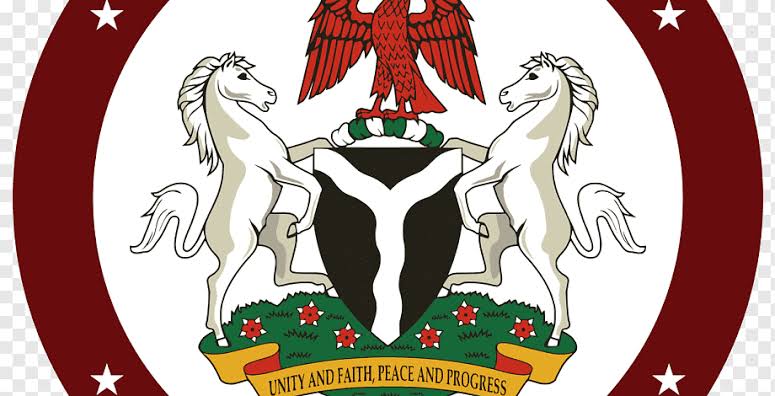
Nigerian Police, Military, Civil Society others reject creation of Nigerian Marine Corps
Nigerian Police, Military, Civil Society others reject creation of Nigerian Marine Corps
On Monday, Deputy Spokesperson of the House of Representatives, Hon. Philip Agbese, joined other lawmakers, the Nigerian Navy, the Nigerian Maritime Administration and Safety Agency (NIMASA), the Nigerian Shippers Council, and several civil society organizations (CSOs) in rejecting a proposed Bill to establish the Nigerian Marine Corps.
The Bill, which was presented for a public hearing by the House Committee on Navy, aims to enhance maritime security and safeguard Nigeria’s blue economy. Titled A Bill for an Act to Establish the Nigerian Marine Corps to Promote Maritime Security (HB 225), it was sponsored by Hon. Alex Egbona (Cross River) and passed its second reading in the House on Thursday, November 30, 2023, before being referred to the Navy Committee for further review.
Opposing the Bill during the hearing, Agbese, who represents the Ado/Okpokwu/Ogbadibo Federal Constituency, argued that the creation of the proposed federal body to handle maritime law enforcement and defense would duplicate the roles already effectively carried out by the Nigerian Navy and other agencies, including NIMASA.
He warned that the establishment of such an agency would lead to unnecessary overlap in responsibilities and administrative inefficiencies.
Speaking on behalf of 66 other House members, Agbese emphasised the importance of scrutinizing proposed legislation to ensure that it serves the nation’s best interests and does not create redundant governmental structures.
Agbese said: “Acting under the mandate to promote efficient governance and resource management, we hereby call for the total and complete rejection of the bill proposing the establishment of the Nigerian Marine Corps.
“It is our contention as members of this legislative body that the creation of this new entity would only result in significant overlap, redundancy and logistical strain, creating operational inefficiencies and imposing unwarranted financial demands on the government.
“The proposed Act outlines the creation of a maritime enforcement agency charged with enforcing or assisting in the enforcement of federal laws on, under, and over Nigeria’s high seas and other waterways, Exclusive Economic Zone (EEZ) and required to maintain a state of readiness to function as a specialized service within the Nigerian Navy in times of war. This proposed body raises multiple operational, economic and strategic concerns particularly in the areas of jurisdictional conflicts, wartime readiness, legal authority and environmental management.
“We have thoroughly examined this bill and its objectives and we assert that the establishment of a Nigerian Marine Corps is both redundant and counterproductive, given the existing roles, mandates and capacities of the Nigerian Navy and other maritime agencies.
“We therefore firmly and unequivocally call for the total defeat of the bill and a recommendation for its immediate withdrawal, while highlighting the compelling need to prioritize efficiency, fiscal responsibility and coherent maritime governance.”
The Nigeria Police Force also strongly criticised the proposed Bill to establish the Nigerian Marine Corps, calling it an ill-advised initiative.
They argued that the Bill would not only duplicate the responsibilities already handled by certain sections of the police but also contribute to the proliferation of maritime security agencies, potentially creating a parallel force to the Armed Forces of Nigeria.
While acknowledging the Bill’s good intentions, SP Nandom Vongjen, Staff Officer for the Marine Section of the Police Force, warned that it could lead to more problems than it resolves.
He advocated for a more strategic approach, urging that existing agencies be strengthened and their capabilities optimized. According to Vongjen, streamlining current structures and fostering greater inter-agency collaboration would enhance maritime security without incurring unnecessary costs or adding bureaucratic layers.
During the public hearing, other key stakeholders echoed similar concerns. Rear Admiral Olusegun Ferreira, Chief of Training & Operations for the Nigerian Navy, Mrs. Moji Jimoh, Coordinator for NIMASA’s Abuja Zonal Office, and Mr. Bala Saleh, Director of Legal Services for the Nigerian Shippers Council, all emphasized the need to fortify existing institutions rather than establishing new ones, which could introduce additional security risks for the country.
Civil society organizations (CSOs) also voiced their opposition to the Bill. Representatives from various CSOs, including Abdullahi Bilal (Spokesman for Security Analysts & Research Forum in Africa), Okwa Daniel (Executive Director of Centre for Social Justice, Equity & Transparency), Daniel Momoh Prince (National President of Nigerian Unemployed Youth Association), Igwe Ude-Umanta (Convener of Coalition of Civil Society Organisations on Economic Watch), and Opialu Fabian (Executive Director of Centre for Human Rights & Advocacy in Africa Network), all argued that the proposed Marine Corps was unnecessary and urged the House to reject the Bill during its third reading.
At the conclusion of the hearing, Hon. Yusuf Gadgi, Chairman of the House Committee on Navy, assured the public that the committee would carry out a thorough and impartial review of the Bill.
He emphasised that the committee’s role was to ensure that legislative actions are made in the best interest of the nation, free from bias.
News
BREAKING ; Atiku’s Son dumps PDP defects to APC, vows to work for President Tinubu’s reelection
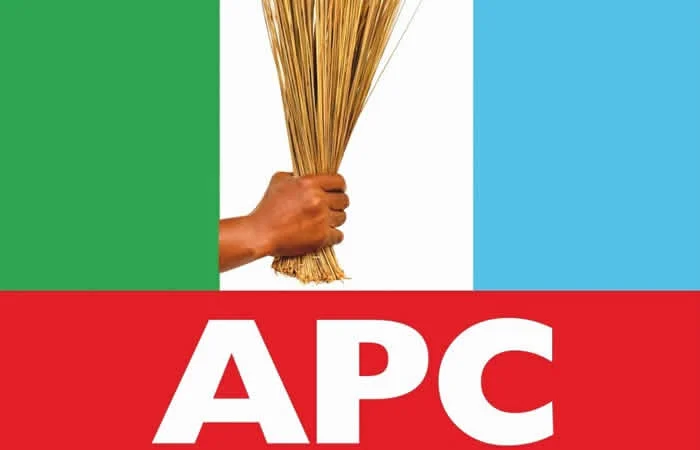
BREAKING ; Atiku’s Son dumps PDP defects to APC, vows to work for President Tinubu’s reelection
The Son of Abubakar Atiku Abubakar, former Vice President and 2023 Peoples Democratic Party (PDP) presidential candidate, Alhaji Atiku Abubakar, dumped the PDP and pledged to work for President Bola Ahmed Tinubu’s re-election in 2027.
Abubakar, popularly known as Abba, formally announced his defection to the APC at the National Assembly, where he was received by the Deputy President of the Senate, Senator Barau Jibrin, with APC leaders from the North-East.
Party leaders described the move as a significant boost to the APC’s consolidation efforts ahead of the next general election, given Abba’s political network and grassroots organisation.
Announcing his resignation from the PDP, Abba said the decision was informed by his conviction in the leadership style of Senator Barau and the policies of the Tinubu administration.
News
Eight persons killed, others injured in another fatal road accident

Eight persons killed, others injured in another fatal road accident
Eight persons died while three others were injured in a road traffic crash along the Potiskum–Dogon Kuka carriageway in Yobe.
The Yobe Sector Commander of the Federal Road Safety Corps (FRSC), Mr Andrew Longkam, confirmed the incident on Thursday.
He said the crash occurred around Gaggaba on the Potiskum–Dogon Kuka axis at about 12:40 hours.
“Preliminary reports from Dogon Kuka Unit Command show the incident was promptly reported to the corps,” Longkam said.
FRSC operatives arrived within five minutes, enabling swift rescue, evacuation of victims, traffic control, road clearance and prevention of secondary crashes.
The crash involved a white Howo trailer, registration DAL 963YY, and a white Mitsubishi Canter, registration NNR 437XA.
“Twelve adult males were involved, with eight fatalities and four rescued, including three injured and one unhurt,” he said.
The injured and deceased were taken to Government General Hospital, Dogon Kuka, where the injured received prompt medical attention.
Longkam said the FRSC tow truck cleared the obstruction, restored traffic flow and notified the Police Motor Traffic Division in Dogon Kuka.
“Preliminary findings indicate the Mitsubishi Canter, suspected to excessive speeding, committed a route violation and crashed into the trailer,” he said.
He said excessive speed and route violation were suspected causes, adding that investigations were ongoing to determine the exact circumstances.
The sector commander urged motorists to avoid speeding, route violations and unsafe practices, assuring continued enforcement, emergency response and public education across the state. (NAN)
News
Atiku finally breaks silence after his Son defects to APC
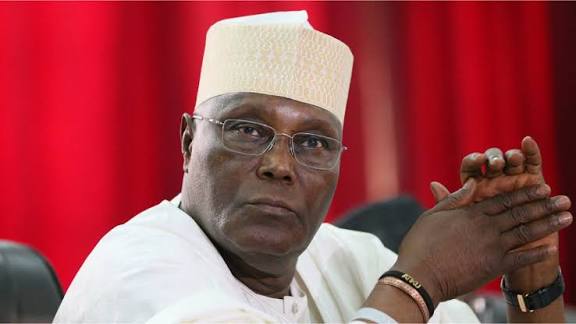
Atiku finally breaks silence after his Son defects to APC
Former Vice President and Peoples Democratic Party (PDP) presidential candidate, Atiku Abubakar, has addressed his son Abba Abubakar’s decision to join the All Progressives Congress (APC), describing it as a personal choice.
In a statement posted on his X handle, Atiku said, “The decision of my son, Abba Abubakar, to join the APC is entirely personal. In a democracy, such choices are neither unusual nor alarming, even when family and politics intersect.”
He added, “As a democrat, I do not coerce my own children in matters of conscience, and I certainly will not coerce Nigerians.”
The former vice president also highlighted his concerns about the ruling party, saying, “What truly concerns me is the poor governance of the APC and the severe economic and social hardships it has imposed on our people.”
“ I remain resolute in working with like-minded patriots to restore good governance and offer Nigerians a credible alternative that brings relief, hope, and progress.”
-
6 years ago
Our situation in Kano terrible – Gov Ganduje cries out
-

 News11 months ago
News11 months agoFG pledges commitment to enhance Police officers Welfare, implement Tinubu’s 8-point agenda for NPF
-
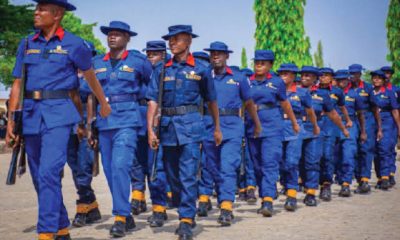
 News11 months ago
News11 months agoBREAKING; NSCDC gets approval to commence 2025 recruitment exercise
-

 News9 months ago
News9 months agoAlleged cocaine deal: Court issues orders in suspended DCP Abba Kyari’s case
-
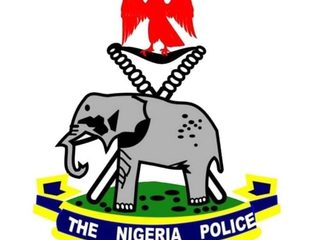
 News12 months ago
News12 months agoDPO under investigation for allegedly taking teenage girl to his home while in police custody
-

 News12 months ago
News12 months agoJUST IN; Commissioner of Police bows out of Service
-

 News9 months ago
News9 months agoJUST IN; Police Inspector dies watching Arsenal match
-

 News12 months ago
News12 months agoBREAKING; NLC declare nationwide protest


